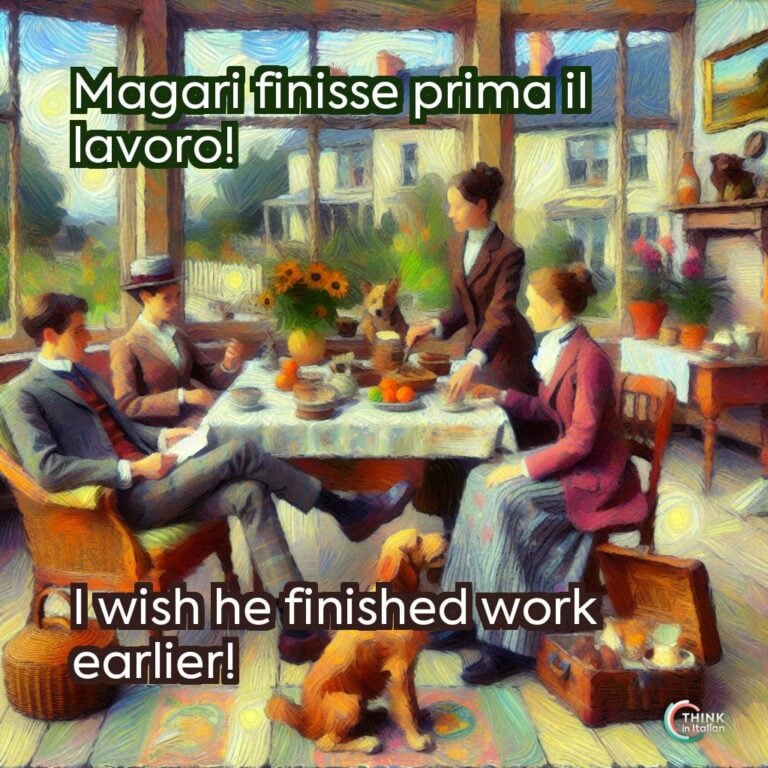“Magari” in Italian
Magari is one of those Italian words with no equivalent in English. The best way to understand its meaning is to see the contexts and how to use magari in Italian.
Primarily, it can be used interchangeably with forse (maybe, perhaps) to express possibility or uncertainty, as in:
Magari dopo vado in palestra.
I might go to the gym later.
As you can see, different English structures can be used to translate it, as long as they convey the right meaning of uncertainty.
Magari can also be used to soften suggestions, making them sound less direct, as in:
Se non riesci a passare l’esame magari studia meglio.
If you cannot pass the exam maybe you should study better.
Another way we can use magari in Italian is in combination with the congiuntivo (subjunctive). This is used to express wishes, similar to “I wish” or “if only” in English, and this is what I will be explaining here.
Notice that, when it is used with this meaning, it can also be used on its own as a response to a statement.
Ti prenderanno sicuramente per quel lavoro!
They will surely hire you for that job
Magari!
I wish!
Let me now show you the structure magari + subjunctive to express hope in Italian.
Magari + Subjunctive
Use
We use magari with either congiuntivo imperfetto or congiuntivo trapassato to express that we wish or hope something. Let me show you two possible scenarios:
- Magari + congiuntivo imperfetto: to express a wish in the present.
- Magari + congiuntivo trapassato: to express a wish referring to the past.
Let’s compare the two following sentences:
Magari venisse alla festa!
If only she came to the party! / I hope she comes to the party!
She did not come to the party yet and she might or might not come. Therefore, this wish is projected towards the future, meaning that the event might still occur.
Magari fosse venuta alla festa!
If only she had come to the party! / I wish she had come to the party!
She did not come to the party, and the party is over. Therefore, the wish is projected towards the past, meaning that the event has not occurred and nothing can change.
As you can perceive, when used with congiuntivo trapassato it is basically the expression of regret!
Examples
Let’s have a look at some more examples. Make sure you pay attention to whether the verbs are in the congiuntivo imperfetto or congiuntivo trapassato.
Magari potessi venire con voi!
I wish I could come with you!
Magari ci dessero più tempo per mandare tutti i documenti.
If only they gave us more time to send all the documents.
Magari aveste avuto una seconda opportunità!
If only you had had a second opportunity!
Magari facesse caldo!
If only it were hot!
Magari fossimo andati al mare!
I wish we had gone to the beach!




